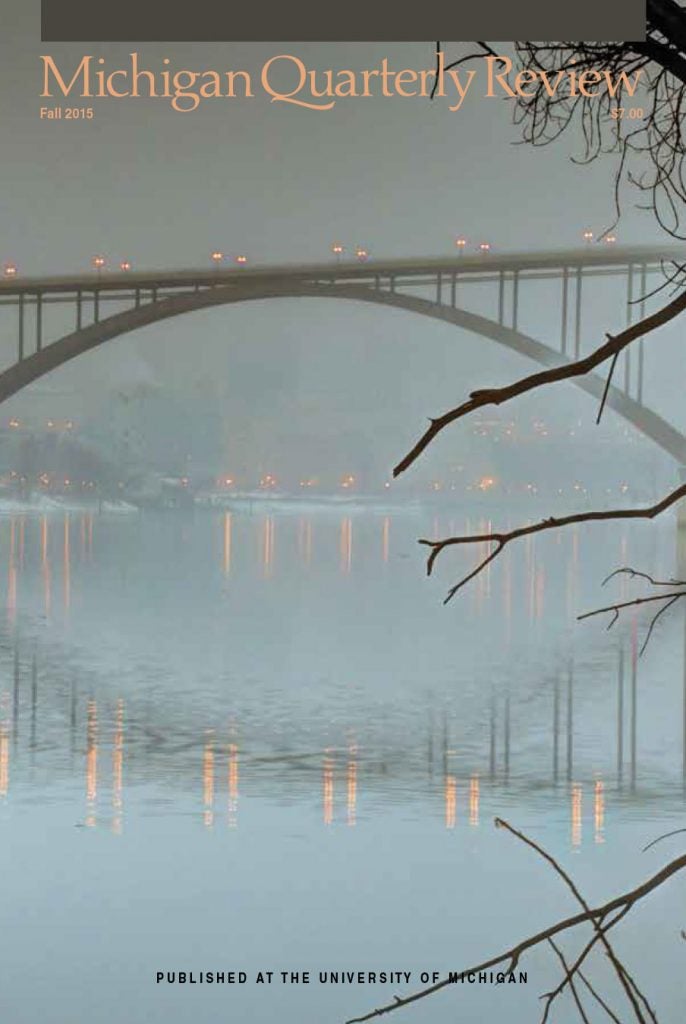MQR 54:4 | Fall 2015
A special section pays tribute to the work of Charles Baxter: Laurence Goldstein tells of discovering Baxter’s first submission to MQR, Matt Burgess discusses “Forbearance,” Michael Byers lays out a Baxterian taxonomy, Matthew Pitt discovers Baxter’s affinity with Wile E. Coyote, Joan Silber analyzes his use of melodrama, Valerie Laken explores “Minnesota nice,” and Jeremiah Chamberlin interviews the man himself.
Fiction from Beth Thompson, Garret Keizer, Ronna Wineberg, Maria Adelmann, Laura Lampton Scott, Jane Ratcliffe.
Poetry from Timothy Liu, Alessandra Lynch, Raymond McDaniel, Deborah Pope, Durs Grünbein.
MQR 54:4 | Fall 2015 Read More »
A special section pays tribute to the work of Charles Baxter: Laurence Goldstein tells of discovering Baxter’s first submission to MQR, Matt Burgess discusses “Forbearance,” Michael Byers lays out a Baxterian taxonomy, Matthew Pitt discovers Baxter’s affinity with Wile E. Coyote, Joan Silber analyzes his use of melodrama, Valerie Laken explores “Minnesota nice,” and Jeremiah Chamberlin interviews the man himself.
Fiction from Beth Thompson, Garret Keizer, Ronna Wineberg, Maria Adelmann, Laura Lampton Scott, Jane Ratcliffe.
Poetry from Timothy Liu, Alessandra Lynch, Raymond McDaniel, Deborah Pope, Durs Grünbein.








